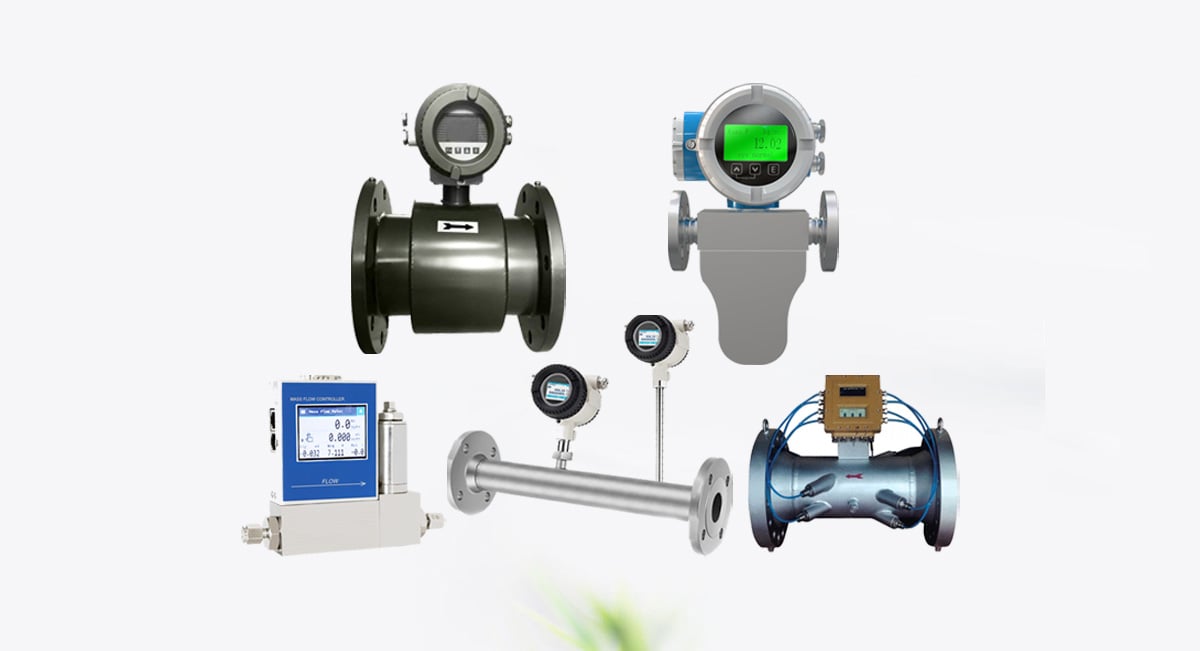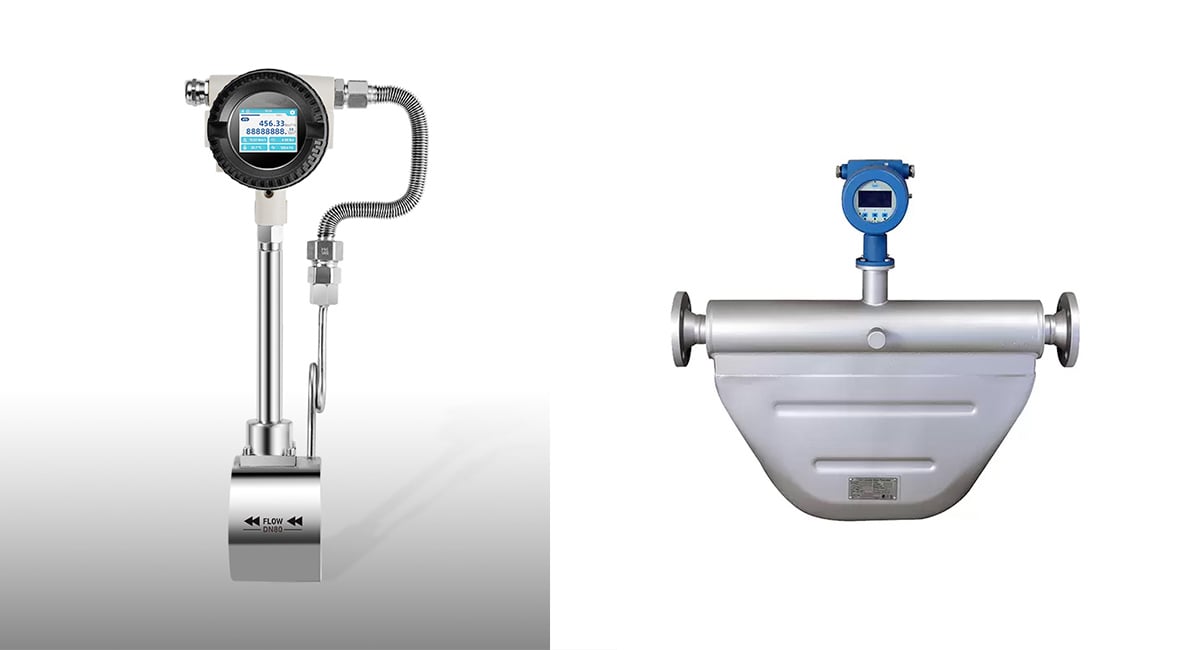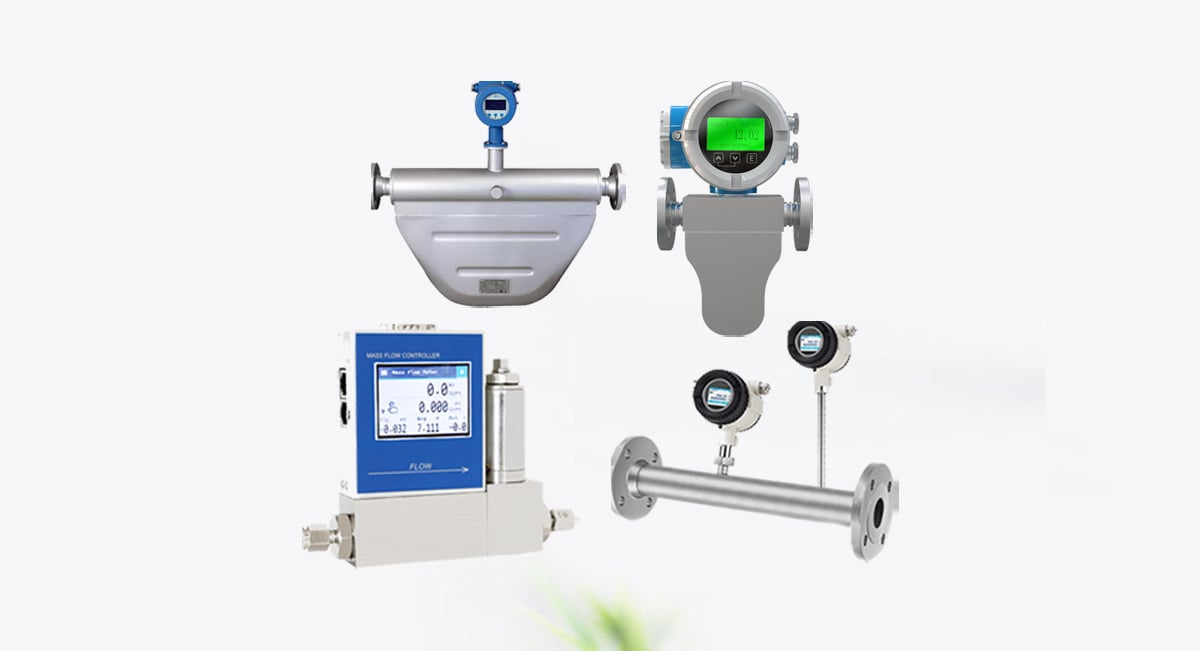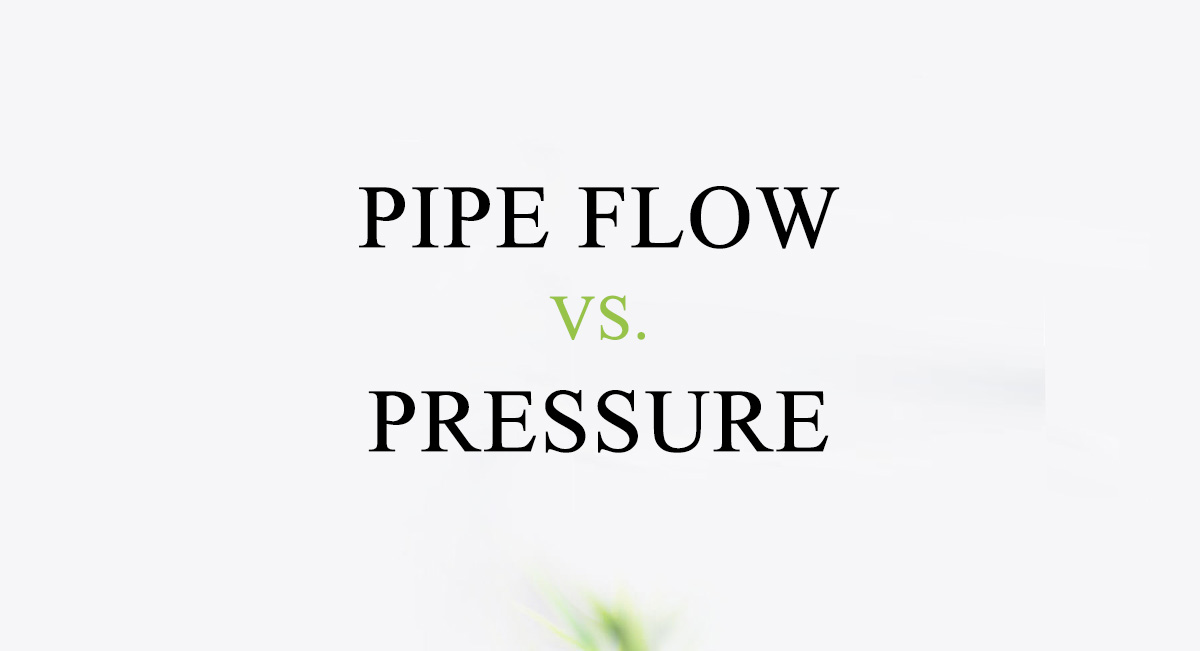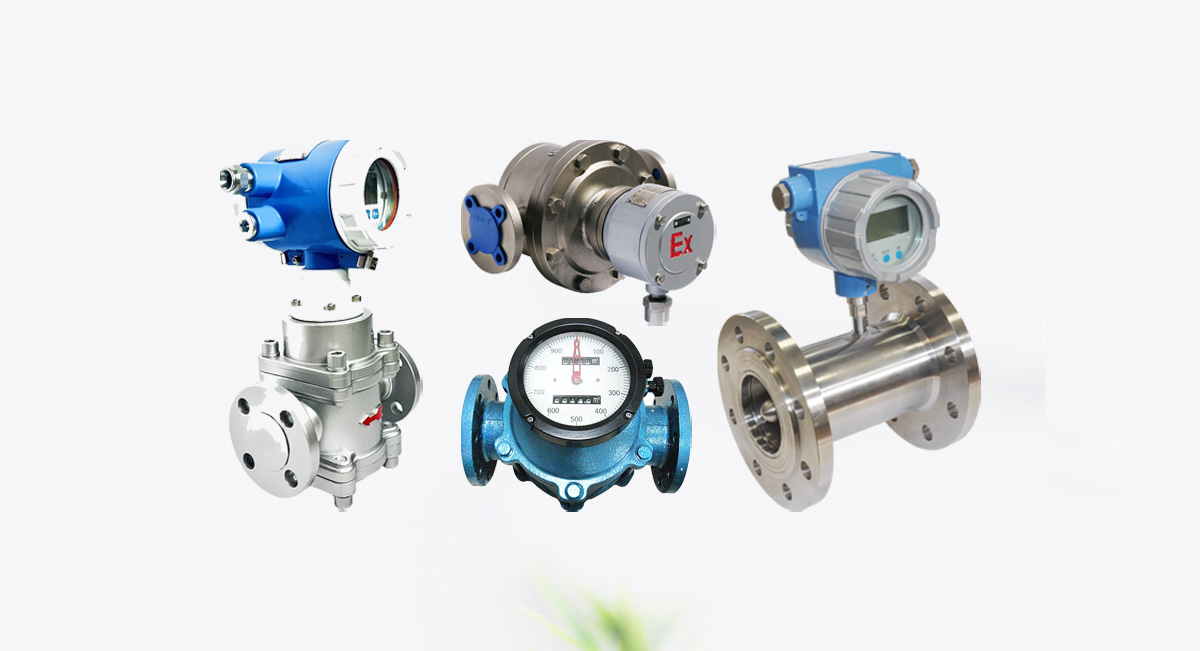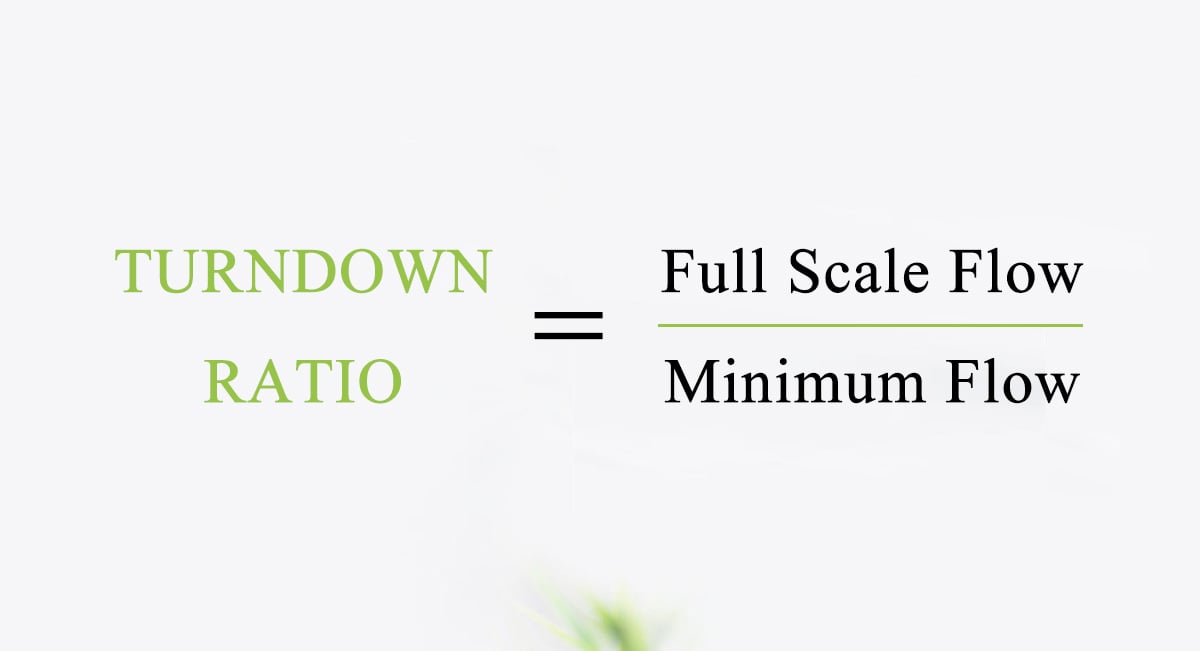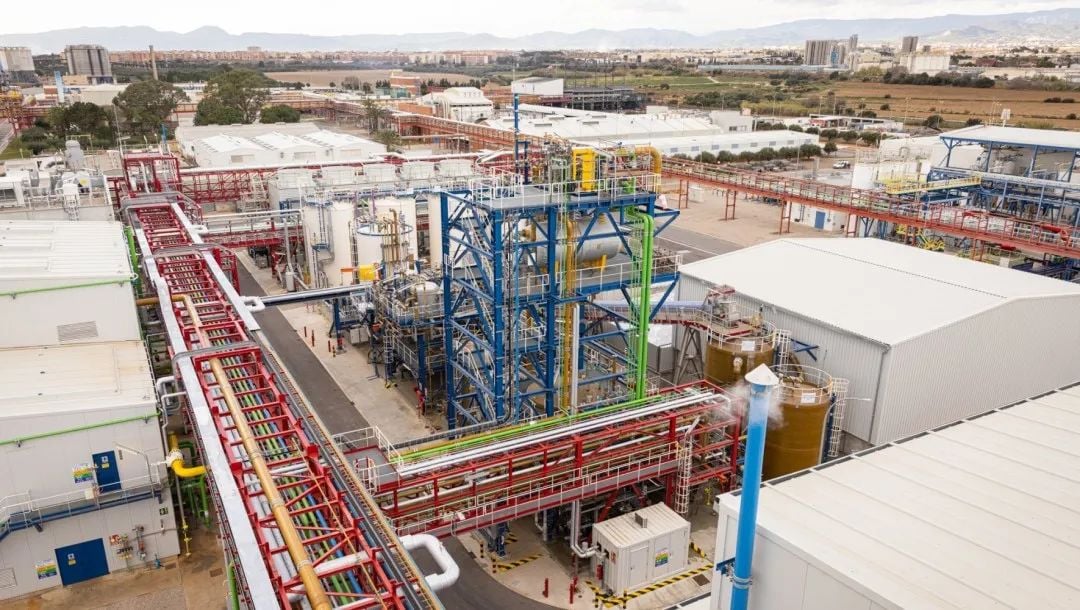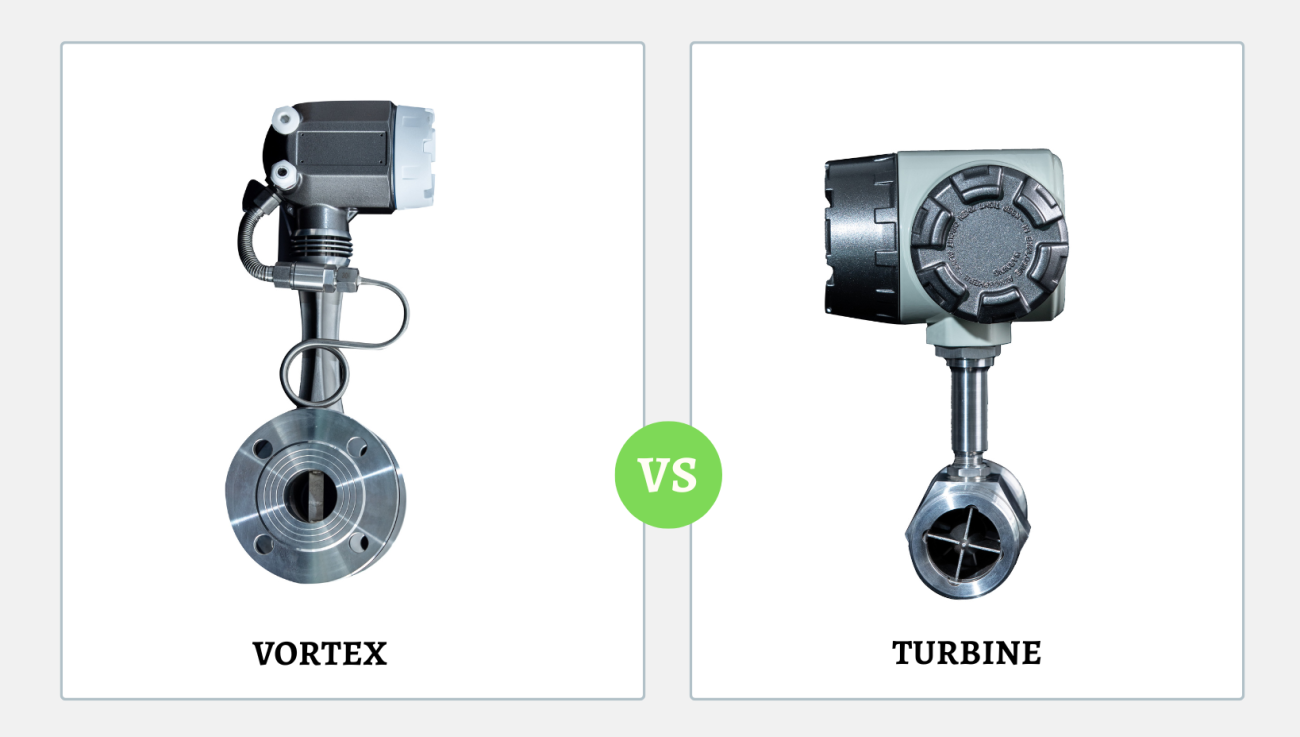In the chemical and process industries, accurate measurement and control of fluid flow are fundamental to ensuring product quality, safety, and efficiency. Chemicals often vary widely in viscosity, corrosiveness, temperature, and pressure — making flow measurement a technical challenge that requires specialized instruments.
Índice
What Is a Chemical Flow Meter?
A chemical flow meter is an instrument designed to measure the rate or total volume of chemical fluids passing through a pipeline. These fluids can include liquid chemicals, corrosive acids, alkalis, solvents, fuels, and even chemical gases.
The purpose of a chemical flow meter is to ensure that precise quantities of chemicals are delivered, mixed, or reacted as required in industrial processes. Accurate flow measurement is critical in sectors such as:
- Chemical manufacturing (acid/base dosing, solvent blending)
- Pharmaceutical production (precise ingredient ratios)
- Petrochemical and refinery processes (fuel and lubricant monitoring)
- Water and wastewater treatment (chlorine or pH-control chemicals)
- Indústria alimentar e de bebidas (cleaning and sterilization chemicals)
In short, chemical flow meters are indispensable tools wherever chemical reactions, dilution, or dosage control depend on precise flow data.
The Importance and Challenges of Measuring Chemical Flow
Measuring chemical flow accurately is crucial not only for product quality and efficiencymas também para safety and regulatory compliance. Many chemicals are corrosive, volatile, or toxic, and any mismeasurement can cause safety hazards, process inefficiencies, or environmental violations.
Why Chemical Flow Measurement Matters
- Accurate dosing and blending – Ensures correct chemical proportions in reactions and formulations.
- Process safety – Prevents leaks, overpressure, or dangerous reactions caused by incorrect chemical flow.
- Cost control – Reduces waste and optimizes resource consumption.
- Regulatory compliance – Maintains adherence to environmental and safety regulations.
Challenges in Chemical Flow Measurement
- Corrosive or reactive chemicals Many acids, alkalis, or solvents can corrode or degrade standard materials like stainless steel or aluminum. And the wetted part or even main part must use corrosion-resistant materials such as PTFE, PFA, PVDF, or Hastelloy.
- Varied viscosity and density Chemical fluids can range from low-viscosity solvents para highly viscous resins or oils. Some flow meters are sensitive to viscosity changes, making them unsuitable for certain applications.
- Temperature and pressure extremes Processes like polymerization or distillation can involve high temperatures (up to 300°C) e high pressures, which affect sensor accuracy and material compatibility.
- Presence of particulates or gas bubbles Slurries or aerated liquids can interfere with flow readings in volumetric or velocity-based flow meters.
- Hazardous environments Chemical plants often require explosion-proof or intrinsically safe flow meters certified for use in hazardous areas (ATEX, IECEx).
For these reasons, selecting a proper chemical flow meter requires careful consideration of both the chemical properties e operating conditions.
Recommended Flow Meter Types for Chemical Applications
Not all flow meters are suitable for chemicals. Below are the most common types recommended for measuring different kinds of chemical fluids, along with their working principles, advantages, and limitations.
Medidores de caudal mássico Coriolis
Princípio de funcionamento:
Coriolis flow meters measure the caudal mássico of fluids by detecting the deflection caused by fluid movement through vibrating tubes.
Principais vantagens:
- Direct measurement of caudal mássico (no need for density compensation)
- High accuracy (±0.1–0.2%)
- Adequado para liquids, slurries, and gases
- Funciona bem para high-viscosity or corrosive chemicals
Limitações:
- Custo inicial mais elevado
- Sensitive to vibration
Melhor para:
High-value or critical processes such as acid dosing, solvent delivery, polymer productione pharmaceutical manufacturing.
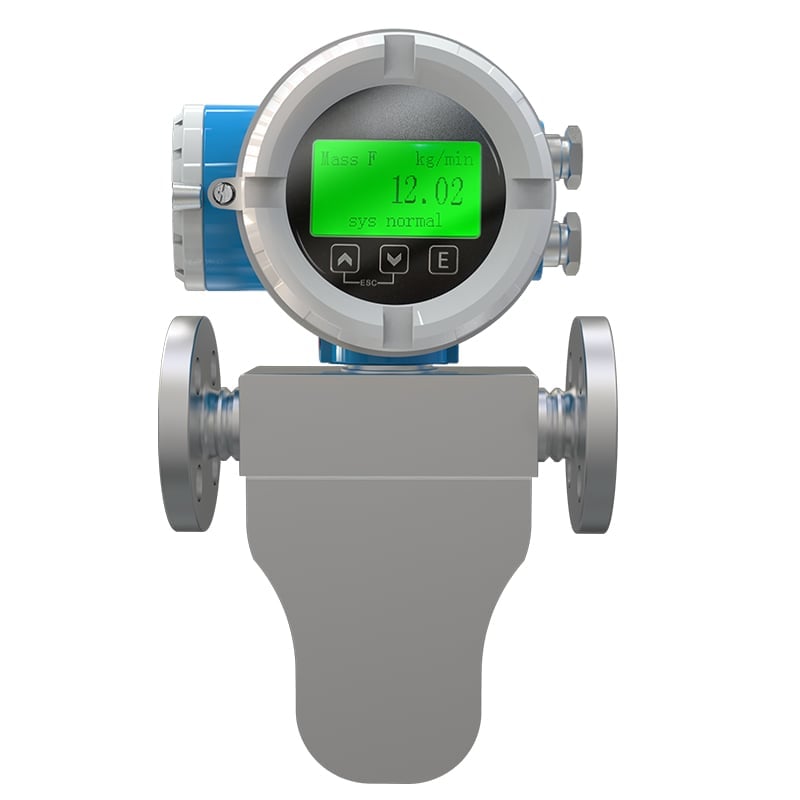
Medidor de caudal mássico Coriolis
- Elevada precisão até ±0,1 %, boa fiabilidade
- Bom desempenho de estabilidade zero e anti-interferência
- Sem partes móveis, sem necessidade de manutenção
- Comunicação digital múltipla, incluindo Hart
Medidores de caudal mássico térmico
Princípio de funcionamento:
These meters measure gas flow by detecting the heat dissipation caused by the gas moving past a heated sensor element.
Principais vantagens:
- Ideal para chemical gases like nitrogen, hydrogen, or chlorine
- Direct mass flow measurement (independent of pressure and temperature)
- No moving parts — low maintenance
Limitações:
- Limited to gases limpos e secos. Here’re more ideas for medidores de caudal de gás.
- Not suitable for liquids or wet gas mixtures
Melhor para:
Monitoring chemical gas flow in inerting systems, gas blending, or leak detection.
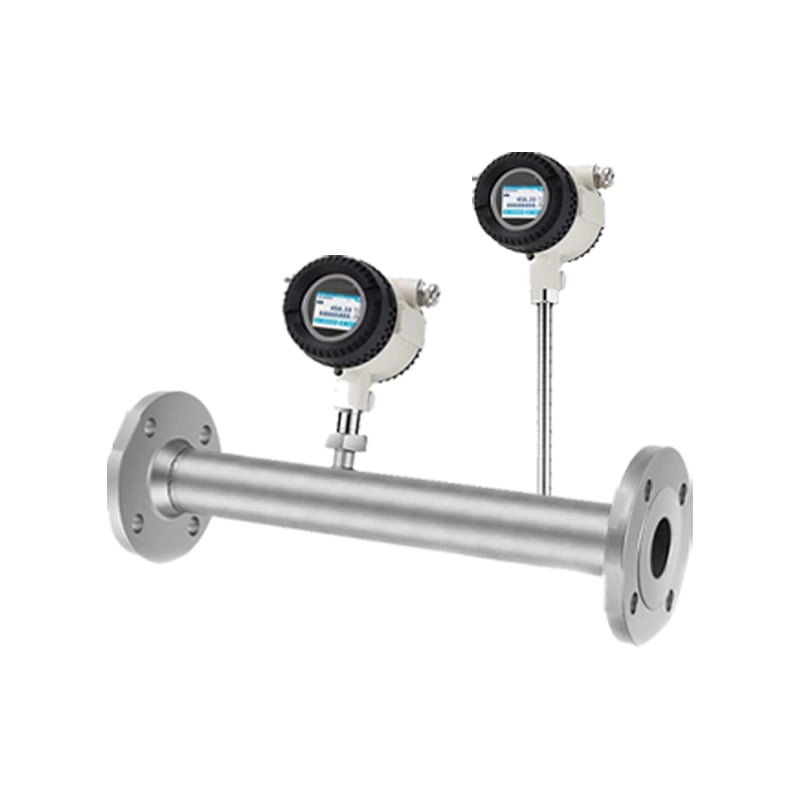
Medidores de caudal mássico térmico
- Classe de proteção contra explosões: Ex db IIC T6 Gb / Ex tb IIIC T80°CDb.
- Meio: Ar comprimido, azoto, oxigénio, dióxido de carbono e outros gases sem condensação.
- Rácio de abertura ultra-amplo de 1:2500, a gama de medição é de 0,1 Nm/s a 250 Nm/s.
- Processamento de sinal totalmente digital, maior precisão, estabilidade a longo prazo.
Medidores de caudal magnéticos
Princípio de funcionamento:
Medidores de caudal magnéticos operate based on Faraday’s law of electromagnetic induction, measuring voltage generated by conductive fluids passing through a magnetic field.
Principais vantagens:
- Sem partes móveis
- Excellent for corrosive, conductive liquids
- High accuracy even with varying viscosity
Limitações:
- Only suitable for líquidos condutores
Melhor para:
Acids, bases, salt solutions, wastewatere chemical slurries.
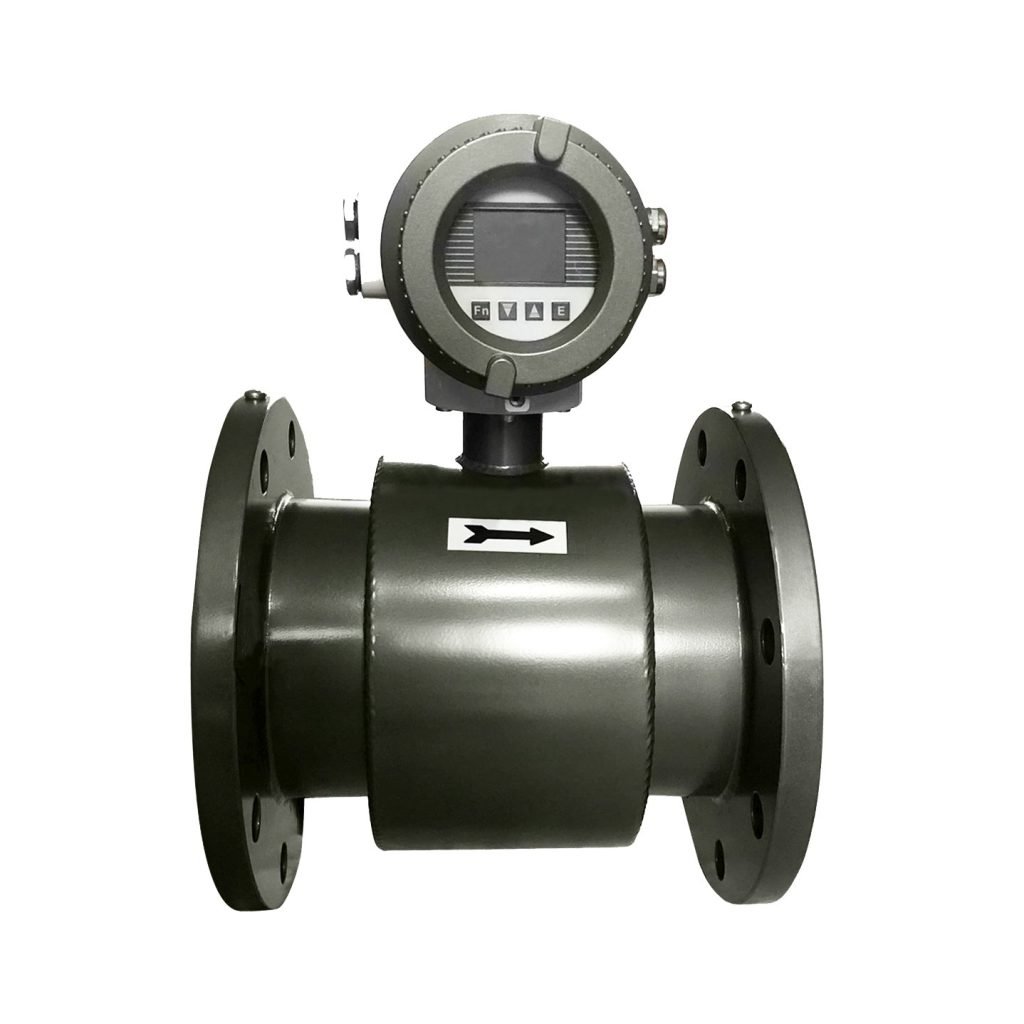
Medidores de caudal electromagnéticos
- Revestimento de PU, PFA, ETFE ou FEP: excelente resistência química e à abrasão
- Wide range of electrode materials, including corrosion-resistant materials like Hastelloy.
- High accuracy up to ±0.2 %
Medidores de caudal de deslocamento positivo
Princípio de funcionamento:
These meters physically trap a fixed volume of fluid and count how many times the chamber fills and empties.
Principais vantagens:
- Excellent for fluidos de alta viscosidade like oils, adhesives, or resins. Most recommended for medidores de caudal de óleo e medidores de caudal de combustível.
- High accuracy even at low flow rates
- Independent of flow profile and pipe orientation
Limitações:
- Contains moving parts that require maintenance
- Not suitable for abrasive or particulate-laden fluids
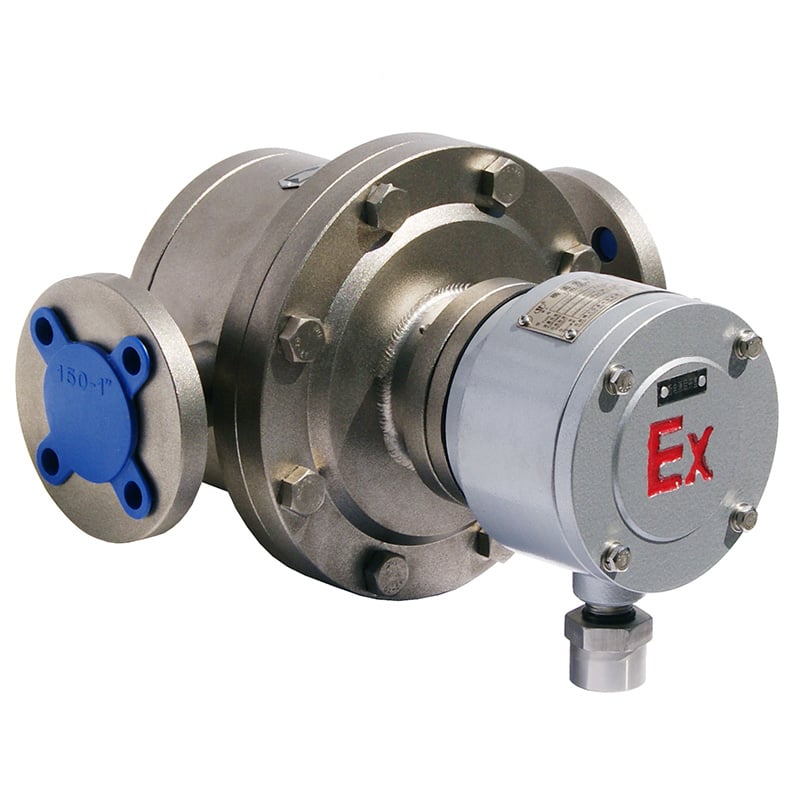
Medidores de caudal de deslocamento positivo
- Funcionamento suave do rotor em espiral com vibração mínima para um desempenho consistente
- Ampla gama de medição com boa repetibilidade
- Medição de alta precisão com exatidão até ±0,2%
- Pouco sensível à variação da viscosidade
- Optimizado para a medição de líquidos de maior viscosidade
Melhor para:
Lubricants, paints, polymerse non-corrosive chemical liquids.
Medidores de caudal ultra-sónicos
Princípio de funcionamento:
Ultrasonic flow meters measure flow rate using sound waves — either by the tempo de trânsito ou Doppler method.
Principais vantagens:
- Não intrusivo (clamp-on type available)
- Works for both conductive and non-conductive fluids
- Adequado para corrosive or sterile processes
Limitações:
- Accuracy affected by bubbles or suspended solids
- Requires a clean pipe surface for clamp-on installation
Melhor para:
Solvents, cooling liquids, and corrosive acids where contamination must be avoided.
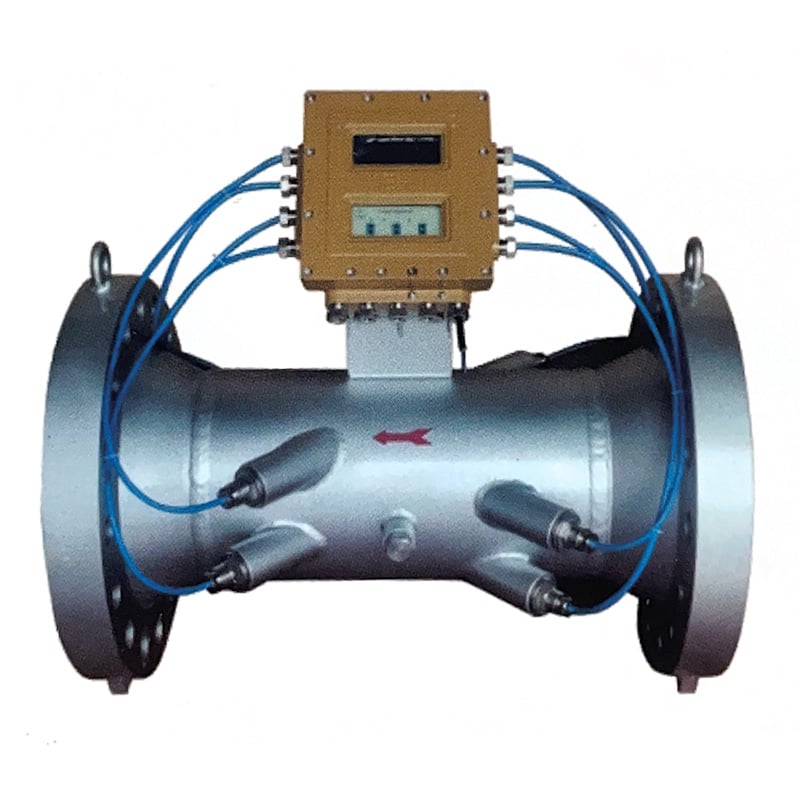
Medidor de caudal de gás ultrassónico
- Alta precisão para gás até ±0,5%
- Sem peças móveis, sem perda de pressão, sem obstruções na linha
- Sem lubrificação ou manutenção periódica
- A medição não é afetada pelas propriedades do gás
- Rácio de abertura ampla de 100:1
- Capacidade bidirecional
Gas Mass Flow Controllers (MFCs)
Princípio de funcionamento:
MFCs combine a mass flow sensor, a valve, and a control circuit to precisely measure and control gas flow in real-time.
Principais vantagens:
- Provides precise flow control, not just measurement
- Compact and suitable for laboratory or pilot-scale processes
- Funciona bem com reactive or specialty gases
Limitações:
- Designed primarily for caudais reduzidos
Melhor para:
Gas mixing, coating processes, and catalyst research.
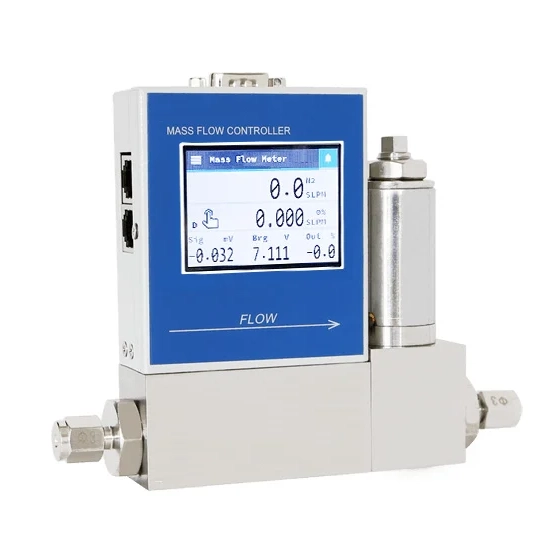
- Designed for low flow gas / liquid measuring
- It can measure high viscosity fluid and high density gas
- Designed for low flow gas / liquid measuring
- Controlador PID integrado para regular o caudal
- Medição direta do caudal mássico, compensação automática da temperatura
How to Choose the Right Chemical Flow Meter
Selecting the correct chemical flow meter requires evaluating several technical and chemical parameters. Below are the main criteria to guide your selection:
1. Identify the Chemical Properties
- Corrosividade: Choose materials like PTFE, PFA, or Hastelloy for aggressive acids or alkalis.
- Condutividade: Use medidores de caudal magnéticos for conductive fluids; for non-conductive fluids, consider ultrasonic or Coriolis types.
- Viscosidade: For viscous fluids, deslocação positiva ou Coriolis flow meters perform better.
2. Define the Flow Range and Pipe Size
Each meter has an optimal flow range. Oversized or undersized meters will reduce accuracy. Always match the flow meter’s range to your process flow rate.
3. Operating Conditions
- Temperature and pressure must be within the meter’s limits.
- In hazardous environments, select explosion-proof ou intrinsically safe models.
4. Installation Requirements
- Consider available space, orientation, and maintenance access.
- Some flow meters (like ultrasonic clamp-on types) are ideal when pipe modification is not possible.
5. Output and Communication
Modern chemical flow meters support 4–20 mA, Modbus, HART, or digital outputs for integration into process control systems.
6. Accuracy and Maintenance
If precision is critical (e.g., chemical blending or dosing), choose Coriolis ou medidores de caudal magnéticos. Some suppliers also provide very high accuracy PD flow meters like Metlan Instruments.
A chemical flow meter plays a vital role in controlling and monitoring chemical processes with accuracy and safety. Because of the diversity of chemical fluids — from corrosive acids to viscous oils — there is no single flow meter suitable for all situations. Ultimately, the right flow meter should match the chemical’s physical properties, the process conditions, and the required accuracy.
About Metlan Instruments Chemical Flow Meters
Em Metlan Instruments, we specialize in high-precision flow measurement and control solutions for industrial applications. Our product range includes medidores de caudal mássico térmico, Medidores de caudal mássico Coriolis, positive displacement meterse mass flow controllers designed for both gases and liquids — including corrosive and specialty chemicals.
With advanced sensor technology and robust materials, Metlan Instruments ensures long-term stability, corrosion resistance, and exceptional accuracy — helping chemical plants, laboratories, and process industries achieve precise and reliable flow measurement.

